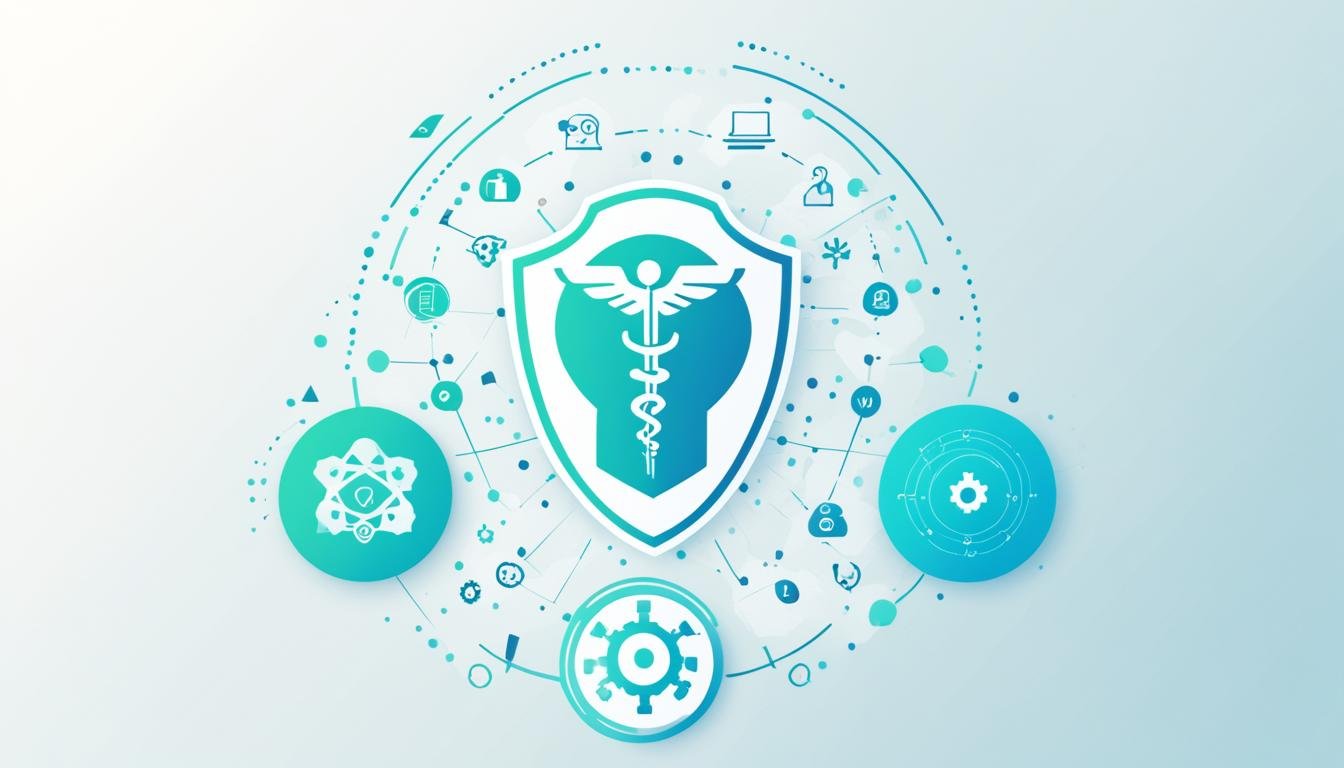Exploring Generative AI in Medical Practice Privacy
Did you know that healthcare data privacy is one of the biggest challenges in the era of AI-driven medical advancements? With the widespread adoption of artificial intelligence (AI) in healthcare, the need for in-depth exploration of privacy and security measures has become crucial.
As generative AI, including models such as generative adversarial networks (GANs) and large language models (LLMs), gains momentum in medical practice, the protection of patient data in AI systems becomes paramount. These data-intensive models have the potential to revolutionize medical diagnostics, drug discovery, virtual health assistants, medical research, and clinical decision support, but they also pose significant privacy challenges.
This Viewpoint paper delves into the various applications of generative AI in healthcare while shedding light on the privacy and security threats associated with integrating these technologies into existing medical infrastructure. With a comprehensive analysis of the current state of generative AI in healthcare, this study aims to provide valuable insights and propose strategies for mitigating security and privacy risks.
Key Takeaways:
- In the era of AI-driven medical advancements, healthcare data privacy is a significant concern.
- Generative AI, such as GANs and LLMs, has the potential to revolutionize medical practice.
- Integrating generative AI into healthcare systems introduces privacy and security threats.
- An in-depth exploration of privacy measures is essential when using generative AI in medical practice.
- This study aims to analyze generative AI in healthcare and propose strategies to mitigate security and privacy risks.
Introduction
Artificial intelligence (AI) is transforming many industries, including healthcare. AI has the potential to revolutionize healthcare by enabling the detection of signs, patterns, diseases, anomalies, and risks. Generative models, a subset of AI, have the capability to synthesize new data, imagery, text, and other content based on patterns learned from existing data. Generative AI has the potential to power clinical practices in healthcare, from generating synthetic patient data to augmenting rare disease research to aiding in drug discovery. However, generative AI systems also pose privacy and security risks due to their data requirements and potential biases. This study aims to address these issues and propose strategies for mitigating risks.
Generative AI Applications in Health Care
Generative AI models, powered by neural networks, are revolutionizing various aspects of health care. These models have the ability to analyze existing data, identify patterns, and generate new and original content. The applications of generative AI in health care are diverse and impactful, ranging from medical diagnostics to drug discovery. These applications are transforming the way medical professionals diagnose and treat patients, ultimately improving outcomes and accelerating medical advancements.
One of the key applications of generative AI is in medical diagnostics. By analyzing medical images, such as radiographs or MRI scans, generative AI models can assist doctors in making accurate diagnoses. These models can identify subtle patterns or anomalies that may be difficult for human clinicians to detect, leading to more precise and timely diagnoses.
Generative AI also plays a crucial role in drug discovery. By generating novel molecular structures, these models can aid in the development of new drugs and therapies. They can analyze vast amounts of data, including chemical properties and biological interactions, to identify potential drug candidates with high efficacy and minimal side effects.
Virtual health assistants, powered by generative AI, are becoming increasingly prevalent in the health care industry. These assistants can provide personalized recommendations, answer medical questions, and even offer emotional support. They use generative AI to simulate human-like conversations, making them valuable resources for patients seeking immediate medical information or guidance.
In the field of medical research, generative AI has the potential to streamline data analysis and accelerate scientific discoveries. Researchers can use generative AI models to generate synthetic data, augmenting limited datasets and expanding the scope of their studies. This technology enables them to explore new hypotheses, identify novel correlations, and gain valuable insights into complex biological systems.
Moreover, generative AI can be applied to clinical decision support, helping doctors make informed and evidence-based decisions. These models can analyze patient data, such as medical records and genetic information, to provide tailored treatment recommendations. By considering the unique characteristics and medical history of each patient, generative AI systems improve the precision and effectiveness of clinical interventions.
The table below summarizes the various applications of generative AI in health care:
| Applications of Generative AI in Health Care |
|---|
| Medical Diagnostics |
| Drug Discovery |
| Virtual Health Assistants |
| Medical Research |
| Clinical Decision Support |
The applications of generative AI in health care go beyond the examples mentioned above. As the technology continues to evolve, new possibilities will emerge, further improving patient care and driving medical innovation.
Security and Privacy Risks in Generative AI
Generative AI systems come with inherent privacy and security risks that must be carefully addressed. Due to their significant data requirements, these systems often rely on sensitive patient data for training and model building. Without proper protection, this data can be exploited by malicious actors, leading to serious consequences such as data breaches, compromised patient trust, and a decline in the reliability of medical institutions.
The collection, processing, and storage of healthcare data are critical stages in generative AI systems. These processes involve handling large amounts of sensitive patient information, increasing the potential risks to privacy and security. Additionally, activities like model training and implementation can introduce vulnerabilities if not adequately secured. Therefore, it is crucial to establish robust security measures and protocols throughout the lifecycle of generative AI systems to safeguard patient data and maintain the trust and reliability of healthcare organizations.
Privacy Risks
The utilization of sensitive patient data in generative AI models poses significant privacy risks. The storage and processing of healthcare data require stringent safeguards to protect patient confidentiality. Unauthorized access or mishandling of this data can result in privacy breaches, leading to the exposure of personal information and identity theft. It is imperative to implement robust data security measures, including encryption, access controls, and secure infrastructure, to mitigate these risks and ensure the privacy of patient data.
Security Risks
The security of generative AI systems is a major concern in healthcare. The potential vulnerabilities within these systems can be exploited by cybercriminals to gain unauthorized access to sensitive patient data or tamper with the integrity of the models. As a result, healthcare institutions may experience data breaches, compromising the confidentiality and integrity of patient information. Implementing comprehensive security measures, including regular audits, vulnerability assessments, and secure coding practices, is essential to mitigate these risks and maintain the security of healthcare data.
To address privacy and security risks effectively, healthcare organizations must prioritize patient trust and the reliability of their systems. This requires a comprehensive approach that encompasses technical measures, such as encryption and secure infrastructure, as well as adherence to relevant data privacy regulations and ethical guidelines. By actively addressing these risks, healthcare institutions can ensure the safe and responsible use of generative AI, fostering patient confidence and supporting the advancement of healthcare practices.
Benefits of Generative AI in Health Care
Generative AI has the potential to revolutionize the field of healthcare, offering a wide range of benefits that can greatly enhance patient care and experience. By leveraging data-driven technologies, generative AI enables improved patient outcomes, lower costs, and groundbreaking medical discoveries.
Improved Patient Outcomes
Generative AI plays a crucial role in enabling more accurate diagnoses and treatment plans. By analyzing vast amounts of patient data and patterns, generative AI models can identify subtle indicators and provide healthcare professionals with valuable insights for tailored treatments. This data-driven approach leads to more precise and effective healthcare interventions, ultimately improving patient outcomes.
Lower Costs
The integration of generative AI in healthcare systems can significantly reduce costs by streamlining administrative processes and automating routine tasks. Through automation, healthcare providers can optimize resource allocation, minimize errors, and enhance operational efficiency, resulting in substantial cost savings. Additionally, generative AI can assist in drug discovery by analyzing vast datasets, accelerating the research and development process, and potentially reducing the overall cost of bringing new drugs to market.
Medical Discoveries
The data-driven nature of generative AI empowers researchers and healthcare professionals to make groundbreaking medical discoveries. By uncovering previously unseen patterns, generative AI models can aid in the identification of new disease markers, potential treatment targets, and predictive analytics. These discoveries can lead to innovation in medical practices, interventions, and therapies, revolutionizing the field of medicine and improving patient outcomes.
Accurate Diagnoses
Generative AI models have shown promise in improving the accuracy of diagnostic processes. By analyzing medical images, patient records, and other relevant data, generative AI algorithms can assist healthcare professionals in making more precise diagnoses. This can reduce misdiagnoses, prevent unnecessary tests or treatments, and enhance the overall efficiency of healthcare delivery.
Data-Driven Treatment
Generative AI enables data-driven treatment plans that are tailored to individual patients. By leveraging vast amounts of patient data, including medical history, genetic information, and lifestyle factors, generative AI models can provide healthcare professionals with personalized treatment recommendations. This data-driven approach has the potential to optimize treatment outcomes and improve patient care.
Patient Care
Generative AI enhances patient care by enabling personalized and patient-centric approaches to healthcare delivery. Through the analysis of patient data, generative AI can support healthcare providers in delivering tailored interventions, improving patient experiences, and fostering greater patient satisfaction. By leveraging the power of generative AI, healthcare organizations can enhance patient engagement, promote shared decision-making, and ensure a more personalized and compassionate approach to patient care.
Generative AI has the potential to transform healthcare by improving patient outcomes, lowering costs, driving medical discoveries, enabling accurate diagnoses, supporting data-driven treatment, and enhancing patient care. By harnessing the power of data and advanced algorithms, generative AI is poised to revolutionize the field of medicine and pave the way for a future of more effective, efficient, and patient-centered healthcare.
Mitigating Security and Privacy Risks in Generative AI
To ensure the safe and responsible use of generative AI in healthcare, it is crucial to implement strong security measures and privacy safeguards. By adopting these measures, healthcare organizations can minimize risks while maximizing the benefits of generative AI.
One of the key security measures is data encryption, which involves encoding sensitive information to protect it from unauthorized access. Encryption ensures that even if data is intercepted, it remains unreadable to anyone without the proper decryption keys.

Access controls are another essential security measure. These controls allow organizations to limit and manage access to sensitive data, ensuring that only authorized individuals can access and manipulate it. By implementing access controls, healthcare organizations can prevent unauthorized users from obtaining or modifying patient data.
In addition to access controls, it is crucial to establish a secure infrastructure for data storage and transmission. This includes using robust authentication protocols, firewalls, and secure servers to protect sensitive healthcare data. A secure infrastructure is vital for maintaining the confidentiality and integrity of patient information.
Another critical aspect of mitigating security risks is bias detection and fairness in generative AI algorithms. Bias detection involves identifying and removing any biases that may be present in the data used to train the AI models. It is essential to ensure that generative AI systems provide fair and unbiased outputs to avoid potential harm or discrimination.
“We must strive to create generative AI systems that are transparent, fair, and accountable.”
Explainability is another crucial factor in addressing security and privacy risks. It is essential to understand how generative AI algorithms work and be able to explain their decisions and outputs. This explainability helps build trust among healthcare professionals and patients, enabling them to make informed decisions based on reliable and interpretable AI outputs.
Data governance is also essential in mitigating security and privacy risks. Establishing robust data governance frameworks ensures that there are clear policies and procedures in place for handling and managing healthcare data. Data governance frameworks help ensure compliance with data privacy regulations and industry best practices.
By adopting these security measures, promoting fairness, ensuring explainability, and establishing robust data governance frameworks, healthcare organizations can successfully mitigate security and privacy risks associated with generative AI in healthcare. These measures are crucial in safeguarding patient information and ensuring the responsible use of generative AI for improved patient care and outcomes.
Ethical Considerations in Generative AI in Health Care
The use of generative AI in healthcare raises important ethical considerations. When integrating generative AI systems, obtaining proper patient consent is crucial to ensure transparency and respect for patient autonomy. This consent should encompass the collection and use of data within these AI systems.
In order to protect patient privacy, healthcare organizations must employ data anonymization techniques. This ensures that patient identities and sensitive information are safeguarded throughout the generative AI process, reducing the risk of unintended disclosure.
To foster trust and accountability, it is essential to prioritize algorithmic transparency in generative AI systems. This can be achieved by implementing mechanisms that allow patients and healthcare providers to understand how these systems operate and make decisions.
Adherence to ethical guidelines is paramount in the responsible deployment of generative AI in healthcare. These guidelines establish a framework for ethical decision-making, promoting patient well-being, fairness, and societal impact.
By addressing ethical considerations such as patient consent, data anonymization, algorithmic transparency, and ethical guidelines, healthcare organizations can ensure the responsible and ethical use of generative AI in patient care.
Key Ethical Considerations in Generative AI
- Patient Consent: Obtaining informed consent from patients regarding data collection and use within generative AI systems.
- Data Anonymization: Employing techniques to protect patient privacy by removing personally identifiable information from datasets.
- Algorithmic Transparency: Ensuring transparency in the decision-making process of generative AI systems.
- Ethical Guidelines: Adhering to established ethical guidelines that prioritize patient well-being, fairness, and societal impact in the use of generative AI.
Future Directions in Generative AI in Health Care
As the field of generative AI continues to advance in healthcare, there are exciting future developments and research opportunities that hold immense potential for improved patient care. These developments encompass various aspects, including policy implications and the creation of secure and privacy-preserving systems.
Further research is crucial to fully explore the capabilities of generative AI in different healthcare domains. This research will contribute to a deeper understanding of how generative AI can enhance medical diagnostics, drug discovery, virtual health assistants, medical research, and clinical decision support.
Research opportunities in generative AI in healthcare also extend to exploring novel applications and expanding its use in addressing healthcare challenges. By conducting in-depth studies, researchers can uncover innovative ways to leverage generative AI for improved patient outcomes and more efficient healthcare delivery.
Policy Implications and Privacy-Preserving Systems
“The integration of generative AI in healthcare requires the collaboration of policy makers, healthcare organizations, and AI developers to establish guidelines and frameworks that ensure ethical and responsible use.”
Policy implications are an important consideration in the future of generative AI in healthcare. It is essential for policy makers to work in conjunction with key stakeholders to establish regulations and protocols that govern the use of generative AI. These policies should prioritize patient privacy, data protection, and ethical considerations.
To address privacy concerns associated with generative AI systems, the development of secure and privacy-preserving systems is crucial. This involves implementing robust data encryption, access controls, and secure infrastructure for data storage and transmission. By prioritizing privacy and security measures, healthcare organizations can ensure the confidentiality and integrity of patient data in generative AI applications.
Improved Patient Care through Generative AI
The future of generative AI in healthcare holds the promise of significantly improving patient care and outcomes. By leveraging the power of generative AI, healthcare providers can deliver enhanced personalized care, accurate diagnoses, and data-driven treatment plans.
“Generative AI has the potential to revolutionize healthcare by enabling healthcare professionals to provide tailored interventions and treatments based on patient-specific needs and characteristics.”
With the integration of generative AI, healthcare professionals can harness the potential of AI-generated insights and recommendations to facilitate effective decision-making, optimize treatment plans, and improve patient satisfaction. Moreover, generative AI can expedite medical discoveries, leading to breakthroughs in treatment options and innovative therapies.
As we move forward, it is essential to prioritize ongoing research, address privacy and security concerns, and establish ethical guidelines to ensure the effective and responsible implementation of generative AI in healthcare. By doing so, we can maximize the potential of this transformative technology to improve patient care and drive advancements in the medical field.
Impact of Generative AI in Health Care
The integration of generative AI in the field of healthcare has the potential to bring about a significant transformation. This advanced technology empowers patients by providing personalized care that caters to their individual needs and preferences. The ability to access tailored treatment options and make informed decisions about their health enhances patient empowerment, giving them a greater sense of control over their well-being.
Furthermore, generative AI plays a crucial role in driving medical innovation. By leveraging its capabilities, healthcare professionals can accelerate the process of drug discovery, leading to the development of new and more effective treatments. The use of generative AI in medical diagnostics improves diagnostic accuracy, enabling healthcare providers to detect diseases and conditions with greater precision.
Data-driven decision-making is another significant advantage of generative AI in healthcare. With the power of advanced algorithms and machine learning, healthcare organizations can harness the insights derived from vast amounts of data to make informed decisions regarding patient care, resource allocation, and strategic planning. The ability to make data-driven decisions helps enhance the efficiency and effectiveness of healthcare delivery, leading to improved patient outcomes.
Benefits of Generative AI in Health Care:
- Enhanced patient empowerment through personalized care
- Accelerated medical innovation and drug discovery
- Improved diagnostic accuracy
- Data-driven decision-making for better healthcare delivery
“Generative AI has the power to revolutionize healthcare, placing patients at the center of their care and driving innovation for better outcomes.” – Dr. Emily Rodriguez, Chief Medical Officer at AI Health Solutions
Comparing Traditional Decision-Making with Data-Driven Decision-Making
| Traditional Decision-Making | Data-Driven Decision-Making |
|---|---|
| Relies on intuition and experience | Utilizes insights derived from data analysis |
| May result in subjective and biased decisions | Leads to objective and evidence-based decisions |
| Limited by individual expertise and knowledge | Utilizes the collective knowledge and patterns in data |
| High risk of human errors and oversight | Reduces errors and increases decision accuracy |
Generative AI has the potential to revolutionize the healthcare industry by transforming patient care, driving medical innovation, and enabling data-driven decision-making. As healthcare continues to embrace the power of AI, the impact on healthcare delivery and patient outcomes is expected to be significant, shaping the future of healthcare in profound ways.
Conclusion
In conclusion, generative AI in healthcare has the potential to revolutionize the field by enabling accurate diagnostics, personalized patient care, and innovative medical discoveries. However, it is crucial to address the privacy and security risks associated with these technologies to ensure the responsible use of AI in healthcare.
Implementing robust security measures, considering ethical guidelines, and establishing proper data governance are essential to safeguard patient information and protect against potential vulnerabilities. It is also crucial to prioritize patient well-being and adhere to healthcare AI ethics when developing and deploying generative AI systems.
Looking to the future, further developments in generative AI should aim to create secure and privacy-preserving systems that align with ethical considerations. Collaboration between policy makers, healthcare organizations, and AI developers is necessary to establish guidelines and frameworks that promote safe and responsible use of generative AI in healthcare. With careful governance, generative AI has the potential to revolutionize healthcare while ensuring patient data protection and upholding AI ethics in the field.
FAQ
What is generative AI?
Generative AI is a subset of artificial intelligence that uses neural networks to identify patterns in existing data and generate new and original content.
How is generative AI used in healthcare?
Generative AI has various applications in healthcare, including medical diagnostics, drug discovery, virtual health assistants, medical research, and clinical decision support.
What are the security and privacy risks associated with generative AI in healthcare?
Generative AI systems pose risks to privacy and security due to their large data requirements and potential vulnerabilities. The collection, processing, and storage of healthcare data, as well as tasks such as model training and implementation, can jeopardize patient information.
What are the benefits of using generative AI in healthcare?
Generative AI can improve patient outcomes by enabling accurate diagnoses, data-driven treatment plans, and personalized patient care. It can also lower healthcare costs and accelerate medical discoveries.
How can security and privacy risks be mitigated in generative AI?
Some measures to mitigate risks include implementing strong security measures such as data encryption and access controls, ensuring secure infrastructure for data storage and transmission, and detecting and addressing biases in generative AI algorithms.
What are the ethical considerations in using generative AI in healthcare?
Ethical considerations include obtaining proper patient consent for data collection, employing data anonymization techniques to protect privacy, ensuring algorithmic transparency and accountability, and adherence to ethical guidelines.
What are the future directions for generative AI in healthcare?
Future directions include further research to explore the full potential of generative AI in various healthcare domains, development of secure and privacy-preserving systems, and establishment of guidelines and frameworks for responsible use.
What impact can generative AI have on healthcare?
Generative AI has the potential to transform healthcare by empowering patients, driving medical innovation, improving diagnostic accuracy, and enabling data-driven decision-making.






